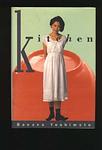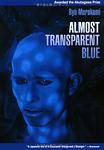The Greatest Italian, Japanese "Contemporary" Books of All Time
Click to learn how this list is calculated.
This list represents a comprehensive and trusted collection of the greatest books. Developed through a specialized algorithm, it brings together 300 'best of' book lists to form a definitive guide to the world's most acclaimed books. For those interested in how these books are chosen, additional details can be found on the rankings page.
Genres
Contemporary books are a genre that focuses on stories set in the present day, often exploring current social, cultural, and political issues. These books are typically written in a modern style and often feature relatable characters dealing with real-life situations. Contemporary books can cover a wide range of topics, from romance and family drama to coming-of-age stories and thrillers. The genre is constantly evolving to reflect the changing world we live in, making it a popular choice for readers who want to stay up-to-date with the latest trends and issues.
Countries
Date Range
Reading Statistics
Click the button below to see how many of these books you've read!
Download
If you're interested in downloading this list as a CSV file for use in a spreadsheet application, you can easily do so by clicking the button below. Please note that to ensure a manageable file size and faster download, the CSV will include details for only the first 500 books.
Download-
1. The Wind-Up Bird Chronicle by Haruki Murakami
A man's search for his wife's missing cat evolves into a surreal journey through Tokyo's underbelly, where he encounters a bizarre collection of characters with strange stories and peculiar obsessions. As he delves deeper, he finds himself entangled in a web of dreamlike scenarios, historical digressions, and metaphysical investigations. His reality becomes increasingly intertwined with the dream world as he grapples with themes of fate, identity, and the dark side of the human psyche.
-
2. Foucault's Pendulum by Umberto Eco
This novel follows three intellectual friends who work at a small publishing house. As a joke, they start inventing a conspiracy theory about a secret society that has been manipulating world events for centuries. However, as they delve deeper into their own fabrication, they begin to lose sight of what's real and what's not. Their lives take a dangerous turn when actual secret societies believe they hold the key to a universal secret and will stop at nothing to obtain it.
-
3. Norwegian Wood by Haruki Murakami
Set in Tokyo during the late 1960s, the novel follows a college student as he navigates a complex love triangle while grappling with his own mental health and the societal pressures of the time. He's torn between his love for a beautiful but emotionally troubled woman and his growing feelings for a lively, outgoing classmate. As he confronts his past, present, and future, the narrative explores themes of love, loss, and personal growth.
-
4. My Brilliant Friend by Elena Ferrante
This novel tells the story of two friends, Elena and Lila, growing up in a poor neighborhood in Naples, Italy in the 1950s. Their intense, complicated friendship is marked by competition, mutual respect, and deep affection. As they navigate the challenges of adolescence, including family drama, academic struggles, and romantic entanglements, their bond is tested and transformed. The narrative explores themes of female friendship, social class, education, and the struggle for personal autonomy in a patriarchal society.
-
5. Kafka On The Shore by Haruki Murakami
"Kafka On The Shore" is a surreal and philosophical novel by Haruki Murakami that follows two parallel storylines. The first is that of Kafka Tamura, a 15-year-old boy who runs away from home to escape an Oedipal prophecy and searches for his missing mother and sister. The second storyline follows Nakata, an elderly man who has lost his memory but possesses the ability to communicate with cats. As their paths converge, they encounter strange and mystical events that challenge their perceptions of reality and identity. The novel explores themes of fate, free will, and the human psyche, and is a captivating and thought-provoking read.
-
6. Kitchen by Banana Yoshimoto
The book is a poignant tale of love, life, and loss intertwined with the themes of food and kitchens. The narrative follows a young woman who, after the death of her grandmother, finds solace in the home of her friend and his transgender mother. As she navigates her grief, she also grapples with her growing feelings for her friend. The story explores the complexities of relationships, the concept of home, and the healing power of cooking.
-
7. A Personal Matter by Kenzaburō Ōe
A Personal Matter is a novel that tells the story of Bird, a young man struggling to come to terms with the birth of his son who has a severe brain hernia. As he grapples with his personal demons and the societal stigma associated with having a disabled child, he also contemplates killing his son to end his suffering. The narrative explores themes of responsibility, shame, and the human condition, ultimately leading to Bird's acceptance of his son and his own life.
-
8. Almost Transparent Blue by Ryū Murakami
The novel is a vivid and disturbing exploration of the lives of a group of young people living in a Japanese port town in the 1970s. They are involved in a hedonistic lifestyle, filled with sex, drugs, and rock and roll, as they aimlessly drift through life. The protagonist, a former student, serves as the narrator, describing the group's experiences in graphic detail, revealing a bleak picture of a generation lost in the aftermath of the post-war economic boom. The narrative's raw and unflinching portrayal of the underbelly of Japanese youth culture is underscored by themes of alienation, self-destruction, and the search for meaning in a chaotic world.
-
9. The Neapolitan Novels by Elena Ferrante
"The Neapolitan Novels" is a four-part series that explores the intricate and lifelong friendship between two women from Naples, Italy. The series spans several decades, beginning in the 1950s, and provides a detailed examination of the women's lives, struggles, and the societal pressures they face. The narrative delves into themes of identity, friendship, love, violence, and socio-political changes in post-war Italy. The series is known for its rich character development and vivid portrayal of female friendship.
-
10. Troubling Love by Elena Ferrante
This novel follows a woman who returns to Naples after her mother's mysterious death, determined to understand the enigmatic life her mother led. As she delves into her mother's past, she uncovers a web of secrets and discovers more about her own identity in the process. The narrative explores themes of mother-daughter relationships, identity, and the power of the past.
-
11. Child Of Fortune by Yuko Tsushima
The novel follows the journey of a single mother in her thirties navigating the complexities of independence and motherhood in modern-day Japan. Struggling against societal expectations and financial hardships, she embarks on a transformative quest for self-discovery and empowerment. As she grapples with her past and uncertain future, the protagonist's experiences illuminate the universal challenges of identity, resilience, and the search for happiness amidst life's trials. Her story is a poignant exploration of the human spirit's capacity to endure and the profound impact of personal freedom on one's destiny.
-
12. Crossfire by Miyuki Miyabe
Crossfire is a suspenseful novel that follows the life of a young woman who possesses pyrokinetic abilities, allowing her to start fires with her mind. She uses her powers to avenge victims of violent crimes, but her actions attract the attention of a determined detective. As she continues her vigilante justice, she becomes embroiled in a conspiracy involving a religious cult and must confront her own past and the consequences of her actions.
-
13. All Our Yesterdays by Natalia Ginzburg
"All Our Yesterdays" is a poignant narrative that delves into the lives of an Italian family and their acquaintances, set against the backdrop of Fascism and World War II. The story explores the complex web of relationships, personal struggles, and societal changes as the characters navigate love, loss, and the impact of political turmoil. Through a series of interconnected tales, the novel paints a vivid portrait of the human condition, highlighting the resilience of the spirit amidst the ravages of war and the passage of time.
-
14. Coin Locker Babies by Ryū Murakami
The book follows the harrowing journey of two boys abandoned at birth in a Tokyo train station locker, who grow up in an orphanage together and form a deep bond. As they navigate a dystopian underworld filled with violence and decay, the boys, now teenagers, embark on a quest for revenge against the mothers who left them and the society that neglected them. Their search for identity and belonging takes them through a surreal landscape of urban chaos, where their shared trauma and desperation for meaning lead them down a destructive path, challenging the reader with themes of abandonment, survival, and the human capacity for both love and brutality.
-
15. Ocean Sea by Alessandro Baricco
In this lyrical and atmospheric novel, the lives of several characters converge at a remote seaside inn, where the ocean serves as a backdrop to their intertwined stories. The narrative weaves together the tales of a cast that includes a grieving widower, a troubled artist, and a mysterious woman, among others, each drawn to the sea for different reasons. The sea itself becomes a central character, representing the vast and unknowable depths of human emotion and experience. Through poetic prose and philosophical musings, the novel explores themes of love, loss, and the eternal quest for meaning in a world that is both beautiful and cruel.
-
16. The Heron by Giorgio Bassani
Set in the mid-20th century Italian countryside, the novel follows the introspective journey of a wealthy, middle-aged landowner who is grappling with the ennui of his comfortable life. On a solitary hunting expedition, he reflects on his personal history, the societal changes post-World War II, and his own sense of alienation in the face of a rapidly modernizing world. As he traverses the foggy landscape, his existential crisis deepens, leading him to question the value of his existence and the choices he has made, culminating in a profound contemplation of life and death.
-
17. South of the Border, West of the Sun: A Novel by Haruki Murakami
The novel tells the story of a man named Hajime, who grew up as an only child in post-war Japan. He forms a deep bond with a girl named Shimamoto during his childhood, but they lose touch as they grow older. Hajime builds a successful life with a wife and two daughters, but he is haunted by his past. When Shimamoto unexpectedly re-enters his life, he is torn between his commitment to his family and his lingering feelings for his childhood love. The novel explores themes of nostalgia, regret, and the complexities of human relationships.
Reading Statistics
Click the button below to see how many of these books you've read!
Download
If you're interested in downloading this list as a CSV file for use in a spreadsheet application, you can easily do so by clicking the button below. Please note that to ensure a manageable file size and faster download, the CSV will include details for only the first 500 books.
Download














